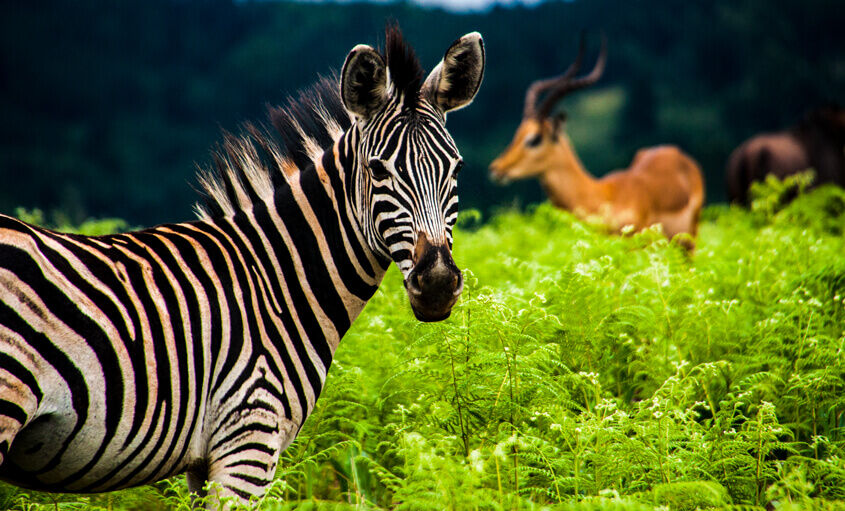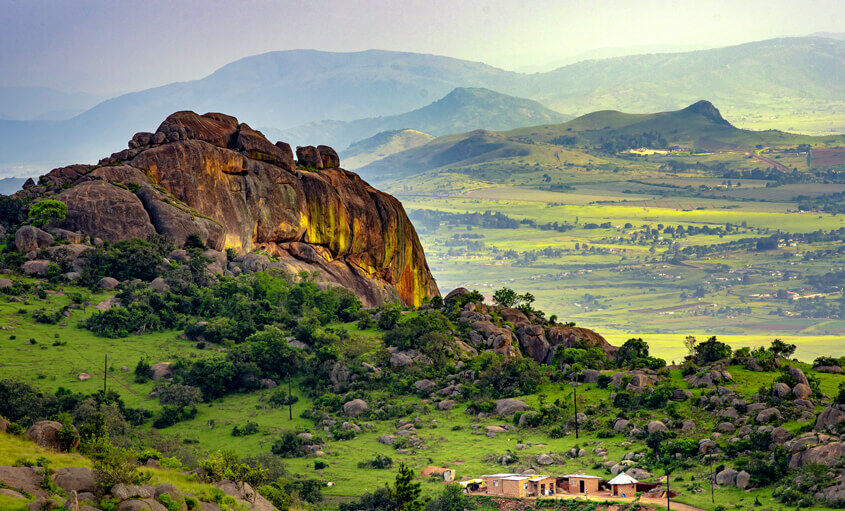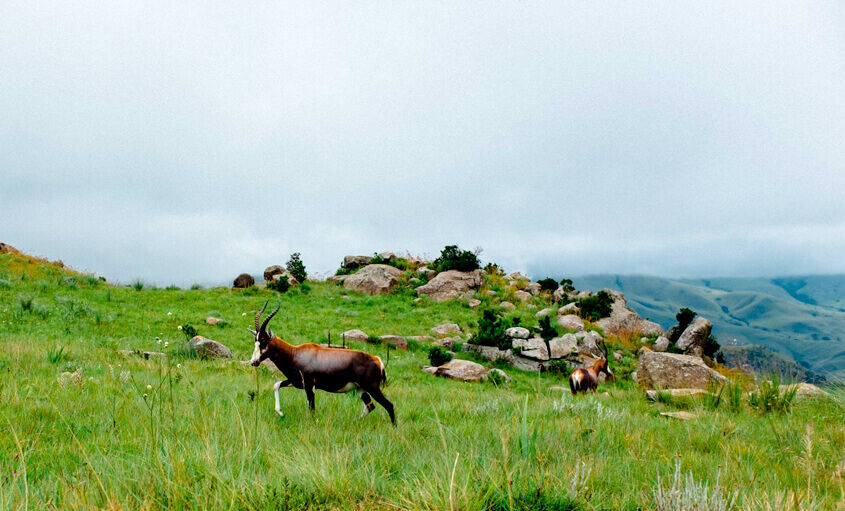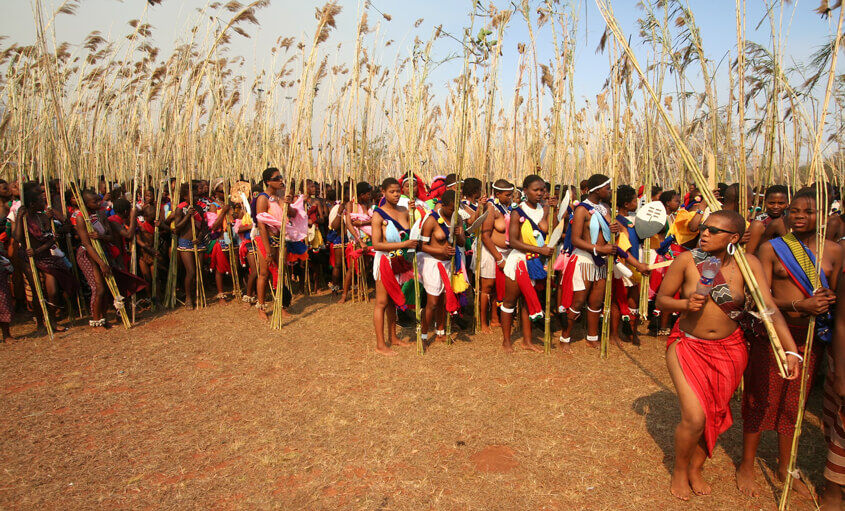Eswatini, formerly known as Swaziland, is a small African country that boasts a unique blend of traditional and modern attractions. It is an absolute monarchy, one of the few remaining in the world, and offers a wealth of cultural, historical, and natural experiences for tourists.
One of Eswatini’s major draws is its stunning natural beauty, including the Mlawula Nature Reserve, home to a variety of wildlife and plant species, and the Hlane Royal National Park, home to animals such as lions, elephants, and rhinos. Hikers will also be amazed by the Sibebe Rock, a 500-meter-tall granite dome that is the largest in the world and offers breathtaking views of the surrounding landscape.
Eswatini’s cultural heritage is also rich, with a long history dating back centuries. The Swazi people, who call Eswatini home, have a strong sense of tradition and community. One of the country’s most famous festivals is the annual Reed Dance, which attracts thousands of participants and spectators and involves traditional dances and the presentation of reeds to the queen mother as a symbol of virginity.
Overall, Eswatini is a destination that offers a unique blend of culture, history, and natural beauty. Whether you’re interested in outdoor adventures, cultural experiences, or simply soaking up the beauty of the country, Eswatini has something for everyone.
Whether you are flying solo, in a group, or on any family vacation, our fine selection of well-curated itineraries take you on a journey to discover the best wildlife places.
What is the currency used in Eswatini?
The Lilangeni, sometimes known as Emalangeni (E), is Eswatini’s official currency and is pegged to the rand (1 Rand = 1 Lilangeni). Rands from South Africa are widely accepted, therefore there is no need to exchange them. In fact, some tourist destinations outside the city will only accept South African currency.
You should exchange again before you depart because Emalangeni are difficult to swap for other currencies outside of Eswatini. You could use your final E50 for the required departure tax if you are flying out of the airport.
How do I pay for goods and services while on safari?
Although credit cards like Visa, Mastercard, and American Express are frequently accepted in hotels, restaurants, and retail establishments, they cannot be used to pay for gasoline. The majority of Eswatini’s ATMs accept foreign credit cards. You can use ATMs operated by Standard Bank to withdraw cash if you have a Maestro or Cirrus debit card.
What kind of clothing do I need for the safari?
In general, attire is casual. “Natural” colors should be worn on safaris instead of light or bright colors. In the uplands, particularly in the winter (April-September), it can get chilly at night, necessitating the wearing of sweaters. On early-morning or late-night safari drives, it may be exceedingly cold.
When is the best time to visit Eswatini?
The warmest months are from October to March, when temperatures may rise above what is comfortable for some in the low-veld but not in the high-veld. On the other hand, the coolest months are from June to August, when the low-veld stays comfortably temperate during the day but is chilly at night in the high-veld. In other words, you can always go where it is warmer – or cooler – depending on taste, because temperatures vary so drastically across the nation. In the afternoons, severe electrical storms frequently occur during the rainy season, and mist frequently covers sizeable portions of the high-veld. However, in general, Eswatini’s weather cannot ever be predicted with the same assurance as that of a region of Africa that is a little bit further north, where the wet and dry seasons are more well defined.
Do I need a visa to visit Eswatini?
You must have a passport. Travelers travelling for fewer than 30 days are not required to have a visa. Most visitors to Eswatini enter through South Africa. Travelers entering or passing through South Africa should have at least two blank visa pages in their passports. Visitors risk being denied admission and being sent back to the United States at their own expense if they don’t have two blank visa pages. Additional documentation is also needed for children entering or leaving South Africa.
Am I likely to fall sick while in Eswatini?
Tetanus, polio, diphtheria (now given as an all-in-one vaccine), and hepatitis A vaccinations should be current. Although a yellow fever vaccine is not required for Eswatini (Swaziland) alone, proof of yellow fever immunization is required if you are traveling from a region where the disease is endemic. Even though the nation is working hard and having considerable results in combating HIV/AIDS, there remains a very high infection rate and all measures should be taken. Regular hand cleaning and consuming fruits and vegetables can help prevent gastrointestinal illnesses.
How are the medical services in Eswatini?
Eswatini has few medical facilities, but some hotels offer private services that can help with minor issues. Transfers to South Africa may be required in some critical situations due to the inadequate healthcare facilities there. All guests are advised to carry health insurance.





Whether you’re planning a safari, or have a question about traveling to Africa, our Travel Specialist would love to respond to your inquiries. Drop us a message.